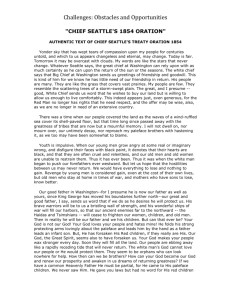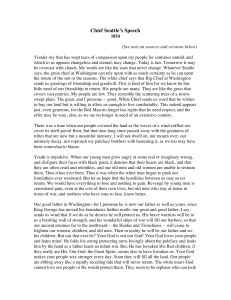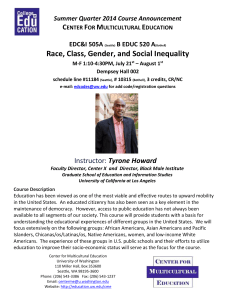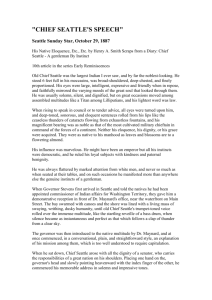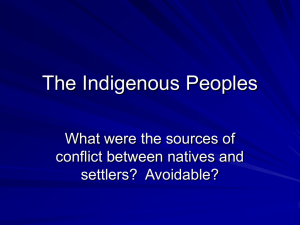lf I
advertisement
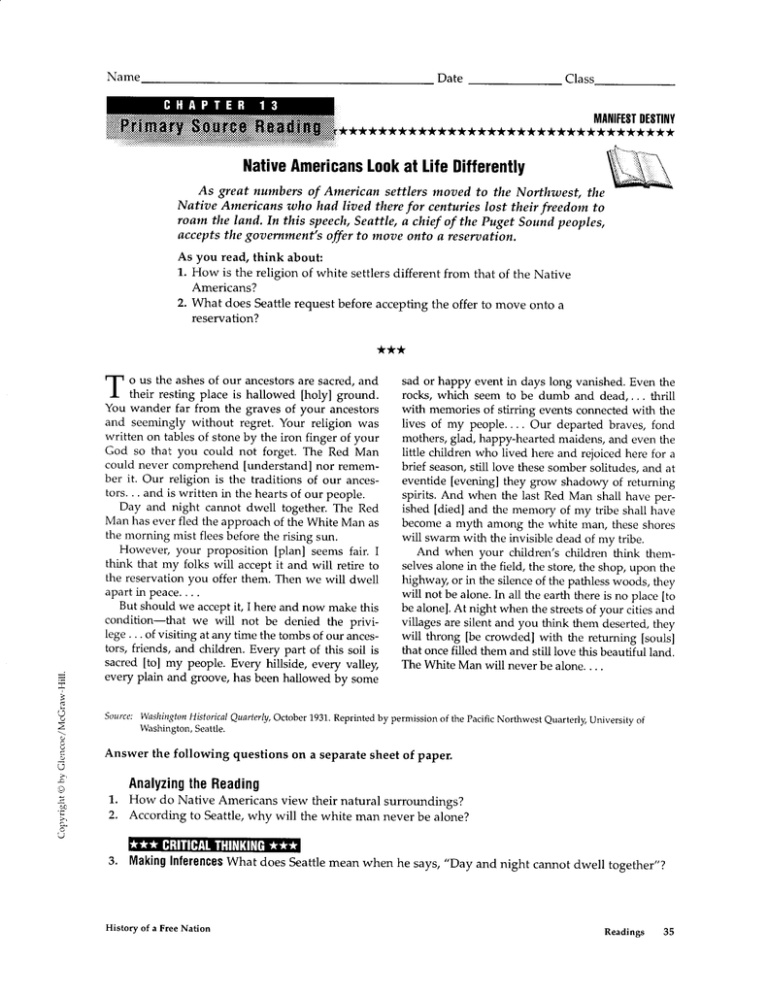
Name Date Class MIIIIFETT DE$TINY ********************************** ilative Americans look at life Differently As great numbers of American settlers moaed to the Northutest, the Natiae Americans who had liaed there for centuries lost their freedom to roam the lsnd. ln this speech, Seattle, a chief ofthe Puget Sound peoples, accepts the gooernment's offer to mooe onto fl reserafrtion. As you read, think about: 1-. How is the religion of white settlers different from that of the Native Americans? 2. What does Seattle request before accepting the offer to move onto a reservation? *** lf I o us the ashes of our ancestors are sacred, and their resting place is hallowed [holy] ground. You wander far from the graves of your ancestors and seemingly without regret. Your religion was written on tables of stone by the iron finger of your God so that you could not forget. The Red Man could never comprehend [understand] nor remem- sad or huppy event in days long vanished. Even the rocks, which seem to be dumb and dead,. .. thrill with memories of stirring events connected with the lives of my people. . . . Our departed braves, fond mothers, glad, happy-hearted maidens, and even the little children who lived here and reioiced here for a brief season, still love these somber solitudes, and at Man has ever fled the approach of the White Man as the morning mist flees before the rising sun. However, your proposition [plan] seems fair. I think that my folks will accept it and will retire to the reservation you offer them. Then we will dwell apart in peace. . . . But should we accept it, I here and now make this eventide [eveningl they grow shadowy of retuming spirits. And when the iast Red Man shall have perished [died] and the memory of my tribe shall have become a myth among the white man, these shores will swarm with the invisible dead of my tribe. And when your children's children think themselves alone in the field, the store, the shop, upon the highway, or in the silence of the pathless woods, they will not be alone. In all the earth there is no place [to be alone]. At night when the streets of your cities and villages are silent and you think them deserted, they will throng [be crowded] with the retuming [sou]sl that once filled them and still love this beautiful land. ber it. Our religion is the traditions of our ancestors. . . and is written in the hearts of our people. Day and night carurot dwell together. The Red condition-that we will not be denied the privi- = T lege . . . of visiting at any time the tombs of our ancestors, friends, and children. Every part of this soil is sacred [to] my people. Every hitlside, every valley, every plain and groove, has been hallowed by some The \l/hite Man will never be alone. . . . i G O Sottrce: Washittgton Historical Quarterly, October 1931. Reprinted by permission of the Pacific Northwest euarterly. University of Washington, Seattle. ! Answer the following questions on a separate sheet of paper. U 5 .o = '! 2. Analyzing the Reading How do Native Americans view their natural surroundings? According to Seattle, why will the white man never be alone? 3. Making Infelences What does Seattle mean when he says, "Day and night cannot dwell toeether,,? -1,. a History of a Free Nation Readings The European Conquest of America 20 SOURCES The Indians as Seen bv European Artists Europeans fornted a t'antastic aariety of nrcntal pictures of the liaes and behttaior oi the natiues of the Americas. O, one hand, they might portray the Indi- ans'as aicious carutibals, with alntost rto social organizatiott. On the other hand, Europeans often pictured Indian society as being ratlrcr orderly, ad' aanced, and "ciuilized." Here are three aery famous sixteenth-century representations. Pictures, ute like to belieue, tell us nrcre tlun words. sttppose you uter-e to try to translate these pictures into a t'ew words, howeaer. Wmt would they lte? cott you inngine otl.rer zunys ot' depicting the Indians thnt Eutopeans might luae used? I €:','= "'13.i \r-s.F;- [ ,,s,r..5 7, l j.i lrr llitlr il ti lilll john White's Engraving of Indians Making a Canoe near Roanoke, 1588' Rare Book Dioision, New York Public Librartl. A Settlement of Virginia r rottt l,nrl i. l/nt, X.\. r,r f. l-ibrtnt
